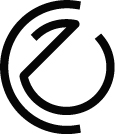Can lessons from working with refugees be translated into our own context?
Learning from communities in threat
As we learn and design for refugees, we gain the opportunity to do the same for own communities. Although the environment of the refugee camp has its own specificities the questions and solutions discussed within its framework are universal and can transfer and interpreted to different communities.A discussion around fostering a sense of community, enhancing the relationship between the public and private realms, and adapting to environmental challenges is beneficial across borders!
Marco Rosero, Andrea Baena, Noora Aljabi
Example : Weaving Together
Addressing the variability of culture, gender, and age within the camp, we propose an adaptable module constructed through a community weaving effort. The simplicity of the module enables it to adapt in size and height whereas the covering for the pavilion is constructed out of materials of the members' choosing. Over time as the preference and needs of the community shift the modules themselves will change. Imagined as temporary structures, the process for construction is intended as an opportunity for social gathering.
Marco Rosero, Andrea Baena, Noora Aljabi






